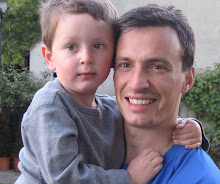 The moment Aung San Suu Kyi made her way down the steps of Westminster Hall, 2500 people rose to applaud her. We didn’t stop applauding until she finally took her seat.
The moment Aung San Suu Kyi made her way down the steps of Westminster Hall, 2500 people rose to applaud her. We didn’t stop applauding until she finally took her seat. Her diminutive figure belies her huge stature. This beacon for democratic freedoms was speaking at the home of parliamentary democracy; the first Asian to do so, the first woman to do so, the first non head of state to do so. She joined Barack Obama, Nelson Mandela and Pope Benedict XVI in a very small group of international figures to have addressed parliament at all. This was an opportunity to hear and to honour an individual who chose to endure 15 years of detention and even surrendered her right to see her dying husband, Michael Aris, in pursuit of a cause for which she was prepared to give her life.
With all the key figures from British political life present, Suu Kyi spoke of her passion for political engagement and participation. She spoke of the cost that the people of Burma have paid; living since 1962 under the iron grip of a military regime which denied the very basic of human freedoms. She spoke of her commitment to pragmatic, constructive dialogue with the same regime which had imprisoned her for so long. She spoke of her conviction that without political freedom, people’s aspirations will go unmet and that no other form of economic or social development is then possible. She spoke of the need to usher in a culture of political settlement in Burma to bring an end to the conflicts with ethnic groups which have raged for over 40 years and led to the worst excesses of human rights violations; the use of children as human mine sweepers, rape as a weapon of war and the forcible displacement of hundreds of thousands of ethnic minorities. She spoke of her pride to have stood and voted in her first election in March 2011 – in which she won a seat as an MP. She spoke of her gratitude to Britain for being the largest bi-lateral donor to Burma of any Western country.
Then she turned her attention to the help needed to build Burma’s future. This was not the moment to relent, to retreat or assume that the battle for a brighter tomorrow had been won, she said. Two issues were needed more than anything else; firstly the need to build the institutions of civil society that will ensure that democracy and the rule of law take root in Burma. Secondly, she called for desperately needed help for Burma’s education sector - to train teachers, develop new curriculums and to increase access to education for ethnic groups.
On all counts, it seemed obvious to me that the organisation I work for, VSO, has an opportunity to provide the volunteers to address both issues which will be so important to sustaining and protecting Burma’s fledgling reforms. Now is the time to re-double our efforts and consider what we can do to assist Burma on the path of becoming a free nation. Any takers to volunteer in Burma?




No comments:
Post a Comment